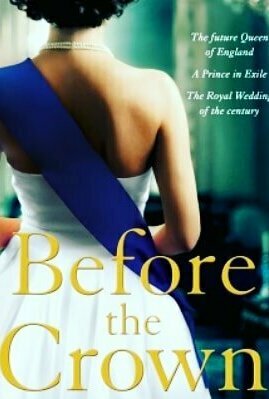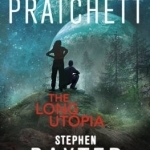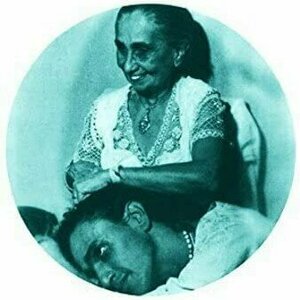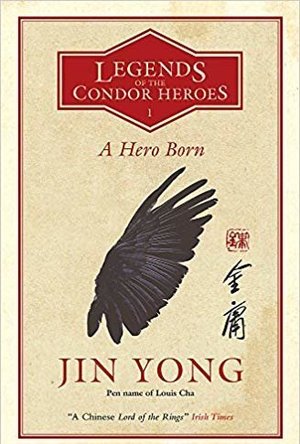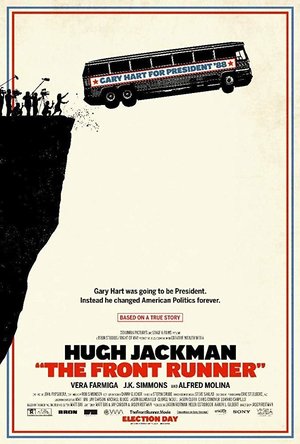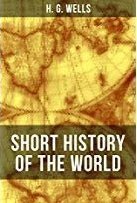Search
Heather Cranmer (2721 KP) created a post
May 1, 2021
Lottie disney bookworm (1056 KP) rated Before the Crown in Books
Jun 14, 2020
Thank you to Netgalley and Flora Harding for giving me the opportunity to read an advanced copy of this novel in exchange for an honest review.
Before the Crown is a beautiful historical novel which delves deep into the romance between Princess Elizabeth and Prince Philip of Greece, perhaps better known as Queen Elizabeth II and the Duke of Edinburgh.
However, this is not a traditional romance and Harding does not hold back in laying out all the struggles Elizabeth and Philip faced. From the King and Queen's disapproval of the match for their daughter to the effects of public opinion on the relationship, Flora Harding covers it all.
Nor does this novel present the engagement as all hearts and flowers. Despite Elizabeth being attracted to Philip from a young age, this is initially a one-sided crush and a political arrangement for the couple. However, due to Flora Harding presenting her novel from the perspective of both Elizabeth and Philip, the reader is able to experience first hand the doubts, worries, longing and evolution of this infamous relationship.
I will be honest it is hard not to envision the Netflix series when you read this novel but it is by no means a copy cat situation. Harding provides such interesting insights into Philip's lifestyle and his family that it is hard not to pity the sacrifices that he makes in order to be with Elizabeth.
In 'The Crown' young Philip was a bit of a dirt bag and, although Harding's Prince is no angel, he is clearly fighting an uphill battle against the aristocracy's view of him. It is difficult not to sympathise.
I would have liked an author's note to know how much of the story is fact and how much is fiction or speculation. However, given the privacy of the Royal Family I imagine any factual insights are rare.
In summary, 'Before the Crown' is a captivating read, exploring the sacrifices and struggles where we often blindly see prejudice, all against the backdrop of WWII Europe.
Before the Crown is a beautiful historical novel which delves deep into the romance between Princess Elizabeth and Prince Philip of Greece, perhaps better known as Queen Elizabeth II and the Duke of Edinburgh.
However, this is not a traditional romance and Harding does not hold back in laying out all the struggles Elizabeth and Philip faced. From the King and Queen's disapproval of the match for their daughter to the effects of public opinion on the relationship, Flora Harding covers it all.
Nor does this novel present the engagement as all hearts and flowers. Despite Elizabeth being attracted to Philip from a young age, this is initially a one-sided crush and a political arrangement for the couple. However, due to Flora Harding presenting her novel from the perspective of both Elizabeth and Philip, the reader is able to experience first hand the doubts, worries, longing and evolution of this infamous relationship.
I will be honest it is hard not to envision the Netflix series when you read this novel but it is by no means a copy cat situation. Harding provides such interesting insights into Philip's lifestyle and his family that it is hard not to pity the sacrifices that he makes in order to be with Elizabeth.
In 'The Crown' young Philip was a bit of a dirt bag and, although Harding's Prince is no angel, he is clearly fighting an uphill battle against the aristocracy's view of him. It is difficult not to sympathise.
I would have liked an author's note to know how much of the story is fact and how much is fiction or speculation. However, given the privacy of the Royal Family I imagine any factual insights are rare.
In summary, 'Before the Crown' is a captivating read, exploring the sacrifices and struggles where we often blindly see prejudice, all against the backdrop of WWII Europe.
Hazel (1853 KP) rated Grave Mercy (His Fair Assassin, #1) in Books
Dec 7, 2018
<i>This eBook was provided by the publisher via NetGalley in exchange for an honest review</i>
<i>Grave Mercy</i> is the first book in Robin LaFevers’ trilogy <i>His Fair Assassin</i> set in Brittany in the middle ages. Young Ismae Rienne escapes from her new, abusive husband to the sanctuary of the convent of St. Mortain, where she learns that she was sired by the god of death. She, like the other sisters of the convent, has been blessed with certain gifts as a result. Their job is to be the handmaidens of death and help to kill people on behalf of St. Mortain.
Ismae’s task is to live in the high courts with a man named Gavriel Duval in order to remove the traitors that threaten the soon to be crowned duchess, Anne. While she is there she begins to suspect that one of the allies is a traitor, but whom? She also begins to fall in love and feels torn in two when the convent demands his death.
It takes a long time to understand what is going on in <i>Grave Mercy</i> especially as a lot of it involves politics of an era of long ago. Towards the end it begins to become more exciting once the reader has worked out who are the good characters and who are the bad and all that is left is to discover how it all resolves itself.
There is something about death and murder in historical fiction that is more gruesome than in contemporary novels. This is another reason why the book was difficult to read.
Initially the amount of names listed on the “Dramatis Personae” at the start of the book was a little daunting however not all of them are key to the plot. The main character, Ismae, is likable and her strength and independence is admirable especially as women did not have much control over their lives at that time. Most of the other characters also existed in real life as, although in part a fantasy novel, LaFevers’ has kept it as historically accurate as possible.
Looking at the reviews on <i>Goodreads</i>, over 900 readers have listed <i>Grave Mercy</i> as Young Adult. After reading the book there is nothing to suggest that it was written for that age group. Admittedly the characters are very young: Ismae, 17, and Anne, 12; but in the 1400s they would have seemed older than society regards people of that age today. The romantic element of the novel is the kind you would expect to find in adult historical novels rather than books for younger readers.
Overall this is a book for people who appreciate historical and political fiction but also like an element of fantasy and romance. It is written really well but to be able to engage fully with the story you need to be really interested in the subject matter.
<i>Grave Mercy</i> is the first book in Robin LaFevers’ trilogy <i>His Fair Assassin</i> set in Brittany in the middle ages. Young Ismae Rienne escapes from her new, abusive husband to the sanctuary of the convent of St. Mortain, where she learns that she was sired by the god of death. She, like the other sisters of the convent, has been blessed with certain gifts as a result. Their job is to be the handmaidens of death and help to kill people on behalf of St. Mortain.
Ismae’s task is to live in the high courts with a man named Gavriel Duval in order to remove the traitors that threaten the soon to be crowned duchess, Anne. While she is there she begins to suspect that one of the allies is a traitor, but whom? She also begins to fall in love and feels torn in two when the convent demands his death.
It takes a long time to understand what is going on in <i>Grave Mercy</i> especially as a lot of it involves politics of an era of long ago. Towards the end it begins to become more exciting once the reader has worked out who are the good characters and who are the bad and all that is left is to discover how it all resolves itself.
There is something about death and murder in historical fiction that is more gruesome than in contemporary novels. This is another reason why the book was difficult to read.
Initially the amount of names listed on the “Dramatis Personae” at the start of the book was a little daunting however not all of them are key to the plot. The main character, Ismae, is likable and her strength and independence is admirable especially as women did not have much control over their lives at that time. Most of the other characters also existed in real life as, although in part a fantasy novel, LaFevers’ has kept it as historically accurate as possible.
Looking at the reviews on <i>Goodreads</i>, over 900 readers have listed <i>Grave Mercy</i> as Young Adult. After reading the book there is nothing to suggest that it was written for that age group. Admittedly the characters are very young: Ismae, 17, and Anne, 12; but in the 1400s they would have seemed older than society regards people of that age today. The romantic element of the novel is the kind you would expect to find in adult historical novels rather than books for younger readers.
Overall this is a book for people who appreciate historical and political fiction but also like an element of fantasy and romance. It is written really well but to be able to engage fully with the story you need to be really interested in the subject matter.
Phil Leader (619 KP) rated The Long Utopia in Books
Nov 20, 2019
The Long Earth series of books presented an intriguing idea, that of being able to 'step' into parallel Earths, each an untouched wilderness and each one slightly different until they became very different planets. How would this affect people on a personal level and how would it affect the social and political stability of the original 'Datum Earth'?
The second book, The Long War explored the political theme further with the superpowers attempting to control the equivalent populations on the other Earths - and mostly meeting resistance to any governance at all. It also introduced the concept of the Next, a super intelligent sub-species of humanity.
The third book, The Long Mars had further incredible iterations of Earth on display and also did the same thing for Mars on a quest to discover a material to use to make a space elevator. The Next also started to organise and to separate themselves from the rest of humanity.
Each of these took the original concept and gave us more interesting worlds and lifeforms. Although the law of diminishing returns was starting to bite - Earth fatigue if you like - the main interest was in seeing what new ideas the authors could wrestle for each new Earth or Mars.
That is where this book fails. It is almost exclusively interested in only one copy of Earth, which comes under direct threat. All the usual suspects - Joshua, Sally, Lobsang and the Next must join forces to prevent a catastrophe threatening the whole Long Earth. There is also a sub-plot involving Joshua's antecedents which although interesting in itself is essentially a Long Earth short story of no relevance to the rest of the plot.
Whereas the previous books had a sense of wonder at each world, this loses that completely. It is in fact a completely standard science fiction story and probably would have been better told as a stand alone story rather than being shoe-horned into the Long Earth concept, which doesn't actually add anything interesting to it. It reads very much like Baxter wanted to write a story about a Dyson motor and as he was contracted to write a Long Earth novel, that's what was used. Unfortunately even this story is not well told with stilted and flaccid dialogue, zero character development and no dramatic tension at all. It was a real struggle to read in places, there is no zip or flow to the story or writing.
Various bits of the plot don't make a great deal of sense and the ending is very lame indeed with the chain of Long Earth worlds being essentially fixed by just thinking about it. The Next decide that Stan Berg, a newly discovered one of their kind, is the only one to 'fix' this despite basically no contact. They are supposed to be super intelligent and think many moves ahead but this just struck me as absurd.
Overall, I would only suggest that Long Earth completists read this. Those who enjoy the Long Earth for its diversity and novel concepts would be better off leaving this one on the shelf.
The second book, The Long War explored the political theme further with the superpowers attempting to control the equivalent populations on the other Earths - and mostly meeting resistance to any governance at all. It also introduced the concept of the Next, a super intelligent sub-species of humanity.
The third book, The Long Mars had further incredible iterations of Earth on display and also did the same thing for Mars on a quest to discover a material to use to make a space elevator. The Next also started to organise and to separate themselves from the rest of humanity.
Each of these took the original concept and gave us more interesting worlds and lifeforms. Although the law of diminishing returns was starting to bite - Earth fatigue if you like - the main interest was in seeing what new ideas the authors could wrestle for each new Earth or Mars.
That is where this book fails. It is almost exclusively interested in only one copy of Earth, which comes under direct threat. All the usual suspects - Joshua, Sally, Lobsang and the Next must join forces to prevent a catastrophe threatening the whole Long Earth. There is also a sub-plot involving Joshua's antecedents which although interesting in itself is essentially a Long Earth short story of no relevance to the rest of the plot.
Whereas the previous books had a sense of wonder at each world, this loses that completely. It is in fact a completely standard science fiction story and probably would have been better told as a stand alone story rather than being shoe-horned into the Long Earth concept, which doesn't actually add anything interesting to it. It reads very much like Baxter wanted to write a story about a Dyson motor and as he was contracted to write a Long Earth novel, that's what was used. Unfortunately even this story is not well told with stilted and flaccid dialogue, zero character development and no dramatic tension at all. It was a real struggle to read in places, there is no zip or flow to the story or writing.
Various bits of the plot don't make a great deal of sense and the ending is very lame indeed with the chain of Long Earth worlds being essentially fixed by just thinking about it. The Next decide that Stan Berg, a newly discovered one of their kind, is the only one to 'fix' this despite basically no contact. They are supposed to be super intelligent and think many moves ahead but this just struck me as absurd.
Overall, I would only suggest that Long Earth completists read this. Those who enjoy the Long Earth for its diversity and novel concepts would be better off leaving this one on the shelf.
David Byrne recommended Muito (Dentro Da Estrela Azulada) by Caetano Veloso in Music (curated)
Sensitivemuse (246 KP) rated A Hero Born in Books
Sep 25, 2019
Great plot but translation isn't so good
Despite what you read on the covers (e.g. “It’s like Lord of the Rings”) ignore all of that. It’s nothing like it. There is no epic adventure to fight evil (at least not yet - this is the first book in the series). So before you get all disappointed in what the outside quotes say, completely disregard them.
Translation will always be an issue with these kinds of books. It’s hard to keep it true and coherent. Sometimes you get a good one that is completely comprehensible and makes the reading a journey well worth it. Then you get one like A Hero Born and it’s not the greatest translation. The writing style is dry and hard to get into. Sometimes it gets too descriptive, but other times it’s not descriptive enough. It can be a little long winded at times and it drags - I’m not too sure if that’s because of the run on writing style or the plot itself. Either way by the last third of the book it was getting to be tiresome.
Speaking of the plot, it was good! There’s plenty of action, a bit of intrigue here and there. If you don’t mind something akin to Chinese historical fiction movies with classic martial arts fighting then perhaps this is for you. There are small elements of political intrigue which keeps the story interesting, however keep in mind there are a lot of characters to keep track of, but luckily there is a cast of characters in the beginning of the novel so that should not be a problem. This isn’t a book to put down and turn back to later, this needs to be consistently read you will easily lose your place.
There’s also several plot arcs that happen throughout the novel so it’s best to keep track of them carefully. They are all intertwined at some point. It’s a great plot and if it wasn’t for the horrible writing/translation.
I don’t know if I could recommend this one to anyone. I would under normal circumstances but the writing just do the plot justice. It’s too bad, it would have been such a great series.
Translation will always be an issue with these kinds of books. It’s hard to keep it true and coherent. Sometimes you get a good one that is completely comprehensible and makes the reading a journey well worth it. Then you get one like A Hero Born and it’s not the greatest translation. The writing style is dry and hard to get into. Sometimes it gets too descriptive, but other times it’s not descriptive enough. It can be a little long winded at times and it drags - I’m not too sure if that’s because of the run on writing style or the plot itself. Either way by the last third of the book it was getting to be tiresome.
Speaking of the plot, it was good! There’s plenty of action, a bit of intrigue here and there. If you don’t mind something akin to Chinese historical fiction movies with classic martial arts fighting then perhaps this is for you. There are small elements of political intrigue which keeps the story interesting, however keep in mind there are a lot of characters to keep track of, but luckily there is a cast of characters in the beginning of the novel so that should not be a problem. This isn’t a book to put down and turn back to later, this needs to be consistently read you will easily lose your place.
There’s also several plot arcs that happen throughout the novel so it’s best to keep track of them carefully. They are all intertwined at some point. It’s a great plot and if it wasn’t for the horrible writing/translation.
I don’t know if I could recommend this one to anyone. I would under normal circumstances but the writing just do the plot justice. It’s too bad, it would have been such a great series.
IT
Innocent Traitor
Book
I am now a condemned traitor . . . I am to die when I have hardly begun to live. Historical...
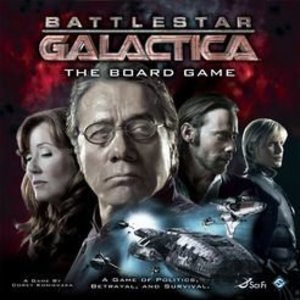
Battlestar Galactica: The Board Game
Tabletop Game
Battlestar Galactica: The Board Game is an exciting game of mistrust, intrigue, and the struggle for...
Bob Mann (459 KP) rated The Front Runner (2018) in Movies
Sep 28, 2021
Candidate for a downfall.
We can all probably rattle off some of the classics movies with US politics as their backdrop. For me, “All the President’s Men”; “Primary Colors”; and “Frost/Nixon” might make that list. In the next tier down there are many great drama/thrillers – “Miss Sloane“; “The Post“; “The Ides of March”; “The American President”; “JFK” – and even some pretty funny comedies – “Dave” and “My Fellow Americans” for example. It’s actually quite difficult to think of many films on the subject that are outright dire, proving it remains a fertile ground for film-makers.
“The Front Runner” fortunately avoids this last category, but it’s certainly not good enough to make it into the ‘classics’ list either.
A true story.
The film is based on the true-story of US presidential hopeful Gary Hart (Hugh Jackman) and if you are NOT aware of the historical background then you might want to skip the rest of this review – and indeed all others – so you can see the film first and let the history come as a surprise to you.
Hart was younger than most candidates: good-looking, floppy-haired and refreshingly matter of fact in his dealings with the public and the press. Any interviews had to be about his politics: not about his family life with wife Lee (Vera Farmiga) and teenage daughter Andrea (Kaitlyn Dever).
Unfortunately, Hart has a weakness for a pretty face (or ten) and his marriage is rocky as a result: “Just don’t embarrass me” is Lee’s one requirement. His “nothing to hide” line to an intelligent Washington Post reporter – AJ Parker (a well cast Mamoudou Athie) – leads to a half-arsed stake-out by Miami Herald reporters and incriminating pictures linking Hart to a Miami pharmaceutical saleswoman Donna Rice (Sara Paxton). As the growing press tsunami rises, and his campaign manager (J.K. Simmons) gets more and more frustrated with him, can his candidacy survive and will his (now very much embarrassed) wife stick by him?
The turns.
Hugh Jackman is perfectly cast here; very believable as the self-centred, self-righteous and stubborn politician. But this central performance is surrounded by a strong team of supporting players. Vera Farmiga is superb as the wounded wife. Sara Paxton is heartbreaking as the intelligent college girl unfairly portrayed as a “slapper” by the media. The scenes between her and Hart-staffer Irene (Molly Ephraim), trying desperately to support her as best she can, are very nicely done. J.K Simmons as campaign manager Bill Dixon is as reliable as ever. And Alfred Molina turns up as the latest film incarnation of The Post’s Ben Bradlee – surely one of the most oft portrayed real-life journalists in film history.
“What did they just say”?
The biggest cause of dissatisfaction I have with the film is with the sound mixing. Was this a deliberate act by director Jason Reitman, to reflect the chaotic nature of political campaigning? Whether it was deliberate or not, much of the film’s dialogue – particularly in the first 30 minutes of the film – is drowned out by background noise. Sometimes I just longed for subtitles!
Just a little bit dull.
The screenplay, by Matt Bai (from his source book), Jay Carson (a Clinton staffer) and director Jason Reitman might align with the history, but the big problem is that the story’s just a little bit dull, particularly by today’s levels of scandal. This suffers the same fate as “House of Cards” (even before the Kevin Spacey allegations) in that the shocking realities of the Trump-era have progressively neutered the shock-factor of the fiction: to the point where it starts to become boring. Here, only once or twice does the screenplay hit a winning beat: for me, it was the scenes between Donna Rice and Irene Kelly and the dramatic press conference towards the end of the film. The rest of the time, the screenplay was perfectly serviceable but nothing spectacular.
When is a politician’s personal life private?
A core tenet of the film is Hart’s view that politics should be about the policies and not about the personality. Looking at the subject nowadays, it’s clearly a ridiculously idealistic viewpoint. Of course it matters. Politicians need to be trusted by their constituents (yeah, like that’s the case in the UK and the US at the moment!) and whether or not they slap their wives around or sleep with farm animals is clearly a material factor in that relationship. But this was clearly not as much the case in the 70’s as it is today, and the suggestion is that the Hart case was a turning point and a wake-up call to politicians around the world. (An interesting article by the Washington Post itself points out that this is also a simplistic view: that Hart should have been well aware of the dangerous game he was playing.)
Fidelity in politics.
Do you think that powerful politicos are driven to infidelity because they are powerful? Or that it is a characteristic of men who have the charisma to become political leaders in the first place? Such was the discussion my wife and I had in the car home after this film. Nature or political nurture? I’m still not sure.
It’s worth pointing out that to this day both Hart and Rice (interestingly, an alleged ex-girlfriend of Eagles front-man Don Henley) stick to their story that they never had sex.
Final thoughts.
The film’s perfectly watchable, has great acting, but is a little bit of a non-event. The end titles came and I thought “OK, that’s that then”…. nothing more. If you’re a fan of this style of historical political film then you probably won’t be disappointed by it; if not, probably best to wait and catch this on the TV.
“The Front Runner” fortunately avoids this last category, but it’s certainly not good enough to make it into the ‘classics’ list either.
A true story.
The film is based on the true-story of US presidential hopeful Gary Hart (Hugh Jackman) and if you are NOT aware of the historical background then you might want to skip the rest of this review – and indeed all others – so you can see the film first and let the history come as a surprise to you.
Hart was younger than most candidates: good-looking, floppy-haired and refreshingly matter of fact in his dealings with the public and the press. Any interviews had to be about his politics: not about his family life with wife Lee (Vera Farmiga) and teenage daughter Andrea (Kaitlyn Dever).
Unfortunately, Hart has a weakness for a pretty face (or ten) and his marriage is rocky as a result: “Just don’t embarrass me” is Lee’s one requirement. His “nothing to hide” line to an intelligent Washington Post reporter – AJ Parker (a well cast Mamoudou Athie) – leads to a half-arsed stake-out by Miami Herald reporters and incriminating pictures linking Hart to a Miami pharmaceutical saleswoman Donna Rice (Sara Paxton). As the growing press tsunami rises, and his campaign manager (J.K. Simmons) gets more and more frustrated with him, can his candidacy survive and will his (now very much embarrassed) wife stick by him?
The turns.
Hugh Jackman is perfectly cast here; very believable as the self-centred, self-righteous and stubborn politician. But this central performance is surrounded by a strong team of supporting players. Vera Farmiga is superb as the wounded wife. Sara Paxton is heartbreaking as the intelligent college girl unfairly portrayed as a “slapper” by the media. The scenes between her and Hart-staffer Irene (Molly Ephraim), trying desperately to support her as best she can, are very nicely done. J.K Simmons as campaign manager Bill Dixon is as reliable as ever. And Alfred Molina turns up as the latest film incarnation of The Post’s Ben Bradlee – surely one of the most oft portrayed real-life journalists in film history.
“What did they just say”?
The biggest cause of dissatisfaction I have with the film is with the sound mixing. Was this a deliberate act by director Jason Reitman, to reflect the chaotic nature of political campaigning? Whether it was deliberate or not, much of the film’s dialogue – particularly in the first 30 minutes of the film – is drowned out by background noise. Sometimes I just longed for subtitles!
Just a little bit dull.
The screenplay, by Matt Bai (from his source book), Jay Carson (a Clinton staffer) and director Jason Reitman might align with the history, but the big problem is that the story’s just a little bit dull, particularly by today’s levels of scandal. This suffers the same fate as “House of Cards” (even before the Kevin Spacey allegations) in that the shocking realities of the Trump-era have progressively neutered the shock-factor of the fiction: to the point where it starts to become boring. Here, only once or twice does the screenplay hit a winning beat: for me, it was the scenes between Donna Rice and Irene Kelly and the dramatic press conference towards the end of the film. The rest of the time, the screenplay was perfectly serviceable but nothing spectacular.
When is a politician’s personal life private?
A core tenet of the film is Hart’s view that politics should be about the policies and not about the personality. Looking at the subject nowadays, it’s clearly a ridiculously idealistic viewpoint. Of course it matters. Politicians need to be trusted by their constituents (yeah, like that’s the case in the UK and the US at the moment!) and whether or not they slap their wives around or sleep with farm animals is clearly a material factor in that relationship. But this was clearly not as much the case in the 70’s as it is today, and the suggestion is that the Hart case was a turning point and a wake-up call to politicians around the world. (An interesting article by the Washington Post itself points out that this is also a simplistic view: that Hart should have been well aware of the dangerous game he was playing.)
Fidelity in politics.
Do you think that powerful politicos are driven to infidelity because they are powerful? Or that it is a characteristic of men who have the charisma to become political leaders in the first place? Such was the discussion my wife and I had in the car home after this film. Nature or political nurture? I’m still not sure.
It’s worth pointing out that to this day both Hart and Rice (interestingly, an alleged ex-girlfriend of Eagles front-man Don Henley) stick to their story that they never had sex.
Final thoughts.
The film’s perfectly watchable, has great acting, but is a little bit of a non-event. The end titles came and I thought “OK, that’s that then”…. nothing more. If you’re a fan of this style of historical political film then you probably won’t be disappointed by it; if not, probably best to wait and catch this on the TV.
BookblogbyCari (345 KP) rated A Short History of the World in Books
Aug 5, 2018
Best known for his classic fiction, HG Wells also wrote a non-fiction book summarising the history of the world, going from the history of the solar system, right up to the date the book was published in 1922.
As I hoped, the book often reads like a novel, with 67 distinct sections, each like a mini story. In order to fit the history of the whole world into one book, by nature the story telling ranges from nice and rapid, to a little too rapid. I found it rather like a catalogue of numerous interesting little nuggets of information. Despite covering events from all over the world, the topics often flow seamlessly from one topic to the next. Due to so many overlapping topics, this history of the world isn't told in a linear purely chronological pattern, but has to go backwards a little, now and again.
At various times throughout, the stories are gripping and Wells successfully brings history to life. I particularly liked the various sections on religious leaders. Appropriately, Wells tackles religion as would any unbiased historian-become storyteller. I also enjoyed the beginning, where Wells paints a crystal clear picture of our solar system and the vast empty space that our dramas are within. His description of our galaxy sounds nothing short of beautiful.
The book was meant to be predominantly factual, but Wells did include a substantial amount of speculation and opinion. This does not distract from the storyline, but adds value in generating the concepts of the time periods.
It covers progress and prosperity as much as carnage and decimation, and provides good explanations of everything it covers. (Although it would benefit from more illustrations). At times it feels detail heavy but also gives the reader a feel for each age - the book is not limited to which country went to war with which country and when, but also examines changes in ways of thinking through the ages. Including the Ancient Greek philosophers, Arabian progress in maths and science, the advent of experimental science, and the development of political and social ideas in Wells’ time.
I was reassured to learn that despite not studying the history of the world in its entirety in school, I was already familiar with much of the book’s content. Having said that, there were also topics where I really felt I was learning something. I read Wells’ opinion on why the Roman Empire fell, and how the industrial revolution was not merely a revolution in machinery, but rather a revolution in how people conducted their everyday lives. There were also some important figures from history described that were never mentioned in my school days, particularly Charlemagne and Roger Bacon.
Towards the end of the book, Wells correctly predicts another war like that of the Great War. However his final message was one of faith and hope in humanity’s progress.
With such a huge scope, Wells must have struggled with deciding what topics to include and what to exclude. I thought he ought to have included a touch more detail on Ancient Egypt, and on the causes of the Great War (World War 1). As a British person myself I would have liked to have seen more on British history.
Likewise, if the book were written now rather than 1922 I began to speculate on what he would and wouldn’t have included. I imagine there would certainly be a section on World War 2, rockets into space, the internet, and 9/11. He would have provided an excellently conducted section on how humans are destroying the planet.
One of the beauties of this book has to be its availability. If you type “short history of the world” into Google, the free PDF of this book takes up much of the first 2 pages of results. If you’re sketchy on world history, this book will fill in the main blanks, and is worth a read if this is your aim, especially if you wish to do so quickly. The fact that it’s split up into so many succinct sections also means that you can pick up and put down the book as often as opportunity allows. It also works well as a reference book, as it does not need to be read from cover to cover in order to look up one particular event or time period.
In summary, this book would be a welcome addition to bookshelf (or ebook library) of the general non-fiction fan or historian.
Find more of my book review on www.bookblogbycari.com
As I hoped, the book often reads like a novel, with 67 distinct sections, each like a mini story. In order to fit the history of the whole world into one book, by nature the story telling ranges from nice and rapid, to a little too rapid. I found it rather like a catalogue of numerous interesting little nuggets of information. Despite covering events from all over the world, the topics often flow seamlessly from one topic to the next. Due to so many overlapping topics, this history of the world isn't told in a linear purely chronological pattern, but has to go backwards a little, now and again.
At various times throughout, the stories are gripping and Wells successfully brings history to life. I particularly liked the various sections on religious leaders. Appropriately, Wells tackles religion as would any unbiased historian-become storyteller. I also enjoyed the beginning, where Wells paints a crystal clear picture of our solar system and the vast empty space that our dramas are within. His description of our galaxy sounds nothing short of beautiful.
The book was meant to be predominantly factual, but Wells did include a substantial amount of speculation and opinion. This does not distract from the storyline, but adds value in generating the concepts of the time periods.
It covers progress and prosperity as much as carnage and decimation, and provides good explanations of everything it covers. (Although it would benefit from more illustrations). At times it feels detail heavy but also gives the reader a feel for each age - the book is not limited to which country went to war with which country and when, but also examines changes in ways of thinking through the ages. Including the Ancient Greek philosophers, Arabian progress in maths and science, the advent of experimental science, and the development of political and social ideas in Wells’ time.
I was reassured to learn that despite not studying the history of the world in its entirety in school, I was already familiar with much of the book’s content. Having said that, there were also topics where I really felt I was learning something. I read Wells’ opinion on why the Roman Empire fell, and how the industrial revolution was not merely a revolution in machinery, but rather a revolution in how people conducted their everyday lives. There were also some important figures from history described that were never mentioned in my school days, particularly Charlemagne and Roger Bacon.
Towards the end of the book, Wells correctly predicts another war like that of the Great War. However his final message was one of faith and hope in humanity’s progress.
With such a huge scope, Wells must have struggled with deciding what topics to include and what to exclude. I thought he ought to have included a touch more detail on Ancient Egypt, and on the causes of the Great War (World War 1). As a British person myself I would have liked to have seen more on British history.
Likewise, if the book were written now rather than 1922 I began to speculate on what he would and wouldn’t have included. I imagine there would certainly be a section on World War 2, rockets into space, the internet, and 9/11. He would have provided an excellently conducted section on how humans are destroying the planet.
One of the beauties of this book has to be its availability. If you type “short history of the world” into Google, the free PDF of this book takes up much of the first 2 pages of results. If you’re sketchy on world history, this book will fill in the main blanks, and is worth a read if this is your aim, especially if you wish to do so quickly. The fact that it’s split up into so many succinct sections also means that you can pick up and put down the book as often as opportunity allows. It also works well as a reference book, as it does not need to be read from cover to cover in order to look up one particular event or time period.
In summary, this book would be a welcome addition to bookshelf (or ebook library) of the general non-fiction fan or historian.
Find more of my book review on www.bookblogbycari.com
